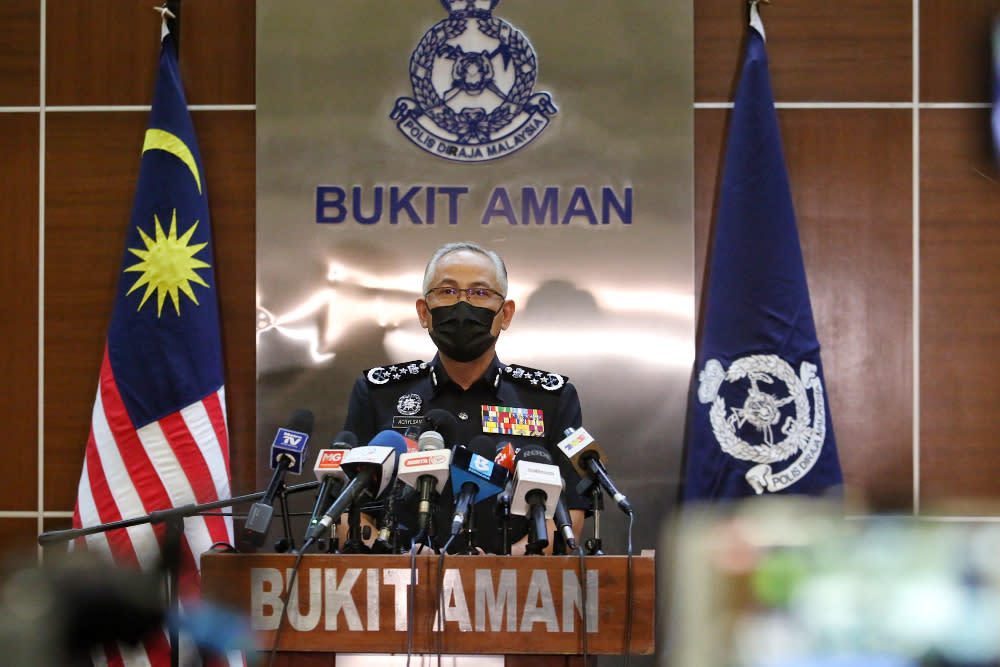Report: IGP promises fair investigation, action against rogue cops alleged to have harassed refugees

KUALA LUMPUR, Sept 27 — Inspector-General of Police Datuk Seri Acryl Sani Abdullah Sani has given his word to investigate and act against rogue officers found to have abused their powers to harass refugees in the country following complaints.
News portal The Malaysian Insight reported today that several refugees in Malaysia who escaped war and conflict in their home country have been repeatedly stopped by certain patrolling police officers here and forced to pay money in return for not being taken in for alleged transgressions.
Acryl urged the affected refugees to write down the names and vehicle number plates of the rogue police officers who harassed them, and to lodge a police report.
“I will make sure a fair investigation is carried out. We will not compromise and will act based on the laws provided,” he was quoted saying.
He was also reported saying that a circular had been issued to all police officers to not stop foreigners without clear evidence of offence committed, in order to avoid abuse of power.
“Police officers have been told not to simply stop foreign nationals to check their passes or permits unless they have clear proof that these people have committed an offence.
“This order was circulated to every officer to prevent abuse of power. Using the reason that the pass or permit is suspected to be false without reasonable information is no justification for an inspection,” Acryl was quoted saying.
The Malaysian Insight cited migrants and refugee rights group Tenaganita as saying that Covid-19 travel restrictions have led to many refugees in the country being unable to get their United Nations High Commissioner for Refugees (UNHCR) letters and cards renewed, and that this had resulted in alleged extortion by police personnel from such refugees.
Tenaganita community liaison officer Elise Arya Chen was quoted saying: “Despite UNHCR having issued authorised letters to explain the expired cards and letters, police were alleged to have continued threatening the refugees with arrests without much reference to the contents of the letters.
“This also led to extortion and bribery, of amounts ranging from RM50 to RM500,” she was also quoted saying.
She also reportedly said that refugees still had difficulties seeking medical treatment at government hospitals and clinics, even when the UNHCR had spoke with the Health Ministry regarding the expired letters and cards.
The Malaysian Insight also cited several refugees who spoke of their encounters with policemen who had allegedly asked for money, and their claims that this happened even when they had UNHCR cards.
Malaysia is currently not a signatory of the UN’s 1951 Refugee Convention and local laws offer refugees little protection or differentiation from illegal immigrants.
According to the UNHCR’s website, the UNHCR card is only an identity document that identifies the holder to be under UNHCR’s protection, but said it has no formal legal value in Malaysia and is not a passport.
UNHCR said its identification documentation, such as the card, provides a level of protection that may reduce the risk of arrest, and allows limited access to health services, education and other essential support services from UNHCR, partner organisations or others.
A check by Malay Mail o UNHCR’s website showed that there are some 179,390 refugees and asylum seekers registered with UNHCR in Malaysia as of the end of August 2021.
These comprise those from Myanmar including Rohingyas, Chins and other ethnic groups, and others from 50 countries fleeing war and persecution, including those from Pakistan, Yemen, Syria, Somalia, Afghanistan, Sri Lanka, Iraq and Palestine.
Related Articles Argentina select three Premier League players for World Cup qualifiers Penang sets up private Covid-19 quarantine centre for low-risk B40 patients Sydney’s unvaccinated warned of social isolation when lockdown ends



